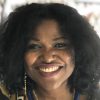In Africa, faculty are the ultimate resource, says Nazik Hammad, MD, MSc (MEHP ’17), an oncologist at Queen’s University in Kingston, Canada. They are teachers, agents of knowledge transmission, and role models to train the next generation of professionals. In fact, anyone who does training, teaching, and managing teams in Sub-Saharan Africa can be considered faculty, even if they are not associated with an academic institution.
Oncologists in low- and middle-income countries play multiple roles and must navigate complex systems with few resources, putting them in danger of burnout. About 70% of cancer deaths occur in these areas while only 30% of resources for cancer are spent there, Hammad says.
To that end, Hammad has been working to launch a faculty development program for African oncologists through a partnership between Queen’s University and the African Organisation for Research and Training in Cancer (AORTIC). In 2020, she received a $90,000 grant from the Royal College of Physicians and Surgeons of Canada’s new International Development, Aid, and Collaboration program to help support the effort.
“The goal is to create a community of practice for African oncologists,” Hammad says, to support existing faculty and develop faculty development champions. “Ultimately, this can help produce a workforce that is able to carry out the task of improving cancer care and cancer outcomes for the entire population.”
So far, Hammad and colleagues, including Miriam Mutebi, vice president of AORTIC and a breast surgical oncologist in Kenya, have conducted a needs assessment by interviewing oncologists in Africa about what they would like to see from faculty development. They also conducted their first workshop this year. It was designed to be held in-person, but because of the ongoing COVID-19 pandemic, the work shifted online. They also developed a series of videos explaining the program and presenting information on career development; leadership and mentoring; and teaching competencies, curriculum, educational scholarship, and program evaluation, which can be viewed on AORTIC’s YouTube channel.
It’s vital to have faculty who are motivated, committed to intellectual and personal growth, engaged, and feeling energized and excited about work, Hammad says. Work through the three-year program will continue to develop online modules and webinars for learning, develop face-to-face learning events, and evaluate modules and webinars to ensure they meet the learning needs of oncologists in Africa.
“It’s really an important area in global health, which goes back to the core that a health system cannot function without health workers,” she says. “To have health workers, you need to train them and support the people doing the training.”

